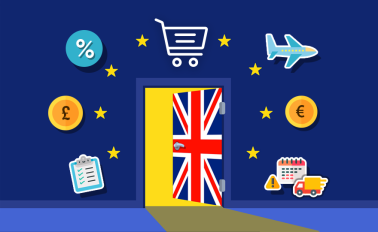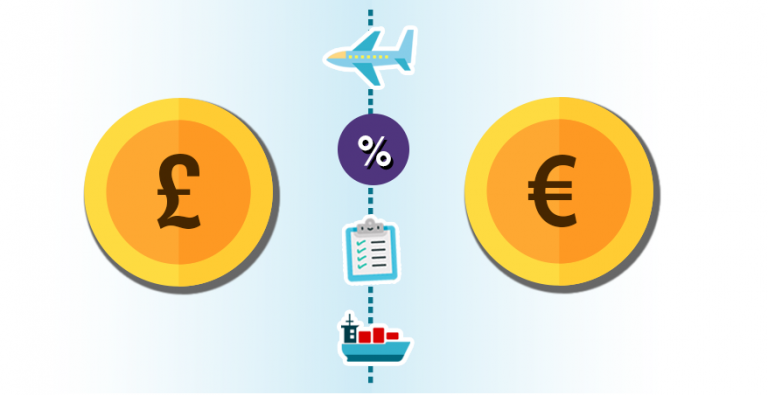In or Out? How Brexit Will Affect eCommerce and How to Prepare For It

October 18, 2019
Whatever your view on Brexit, it looks as though we’ll be leaving the EU. Whether we leave with a deal or not, Brexit will alter B2B ecommerce and online retail significantly.
Up until now, eCommerce has played a foundational role in setting up complex-yet-frictionless supply chains with EU member states. With import duties, tariffs and extended border delays looming, we break down how to prepare for a post-Brexit landscape and how the TrueCommerce platform can temper the rocky transition.
How Brexit Will Affect Online Retailers
When it comes to Brexit, even the biggest eCommerce players are concerned. Last year, Amazon’s UK head, Doug Gurr, warned that the change could cause “civil unrest”, implying that those who have defined eCommerce over the past decade are lukewarm at best over the possibility of the UK-EU separation. However, why is eCommerce at large worried about life post-Brexit, and how will it affect the majority of platforms and storefronts?
Tariffs
The major concern for eCommerce platforms and online retailers is tariffs. Currently, Britain enjoys free trade with the EU and EU-enabled states like Norway and South Korea. Figures from both sides of the debate, however, do not paint the prettiest of pictures post-Brexit, with pro-EU organisations estimating that tariffs would range from 2.2% of GDP to 9% and euro-sceptic organisations estimating that tariffs would cost exporters £7.4 billion a year.
Order Fulfilment and VAT
Should Britain leave Brexit without a deal, major changes will likely be made to VAT from EU sales. A no-deal Brexit would mean business can no longer collect VAT from EU sales, leading to prices that may go lower, but fulfilling sales and shipping may slow down significantly. Slowdown on shipping and orders is partially tied to this VAT change and its effect on customs, but a slew of additional red tape may scupper even the smoothest of shipping channels, too.
Additional customs formalities and longer waiting times may hold back shipping, which could majorly disrupt perishable goods and time-sensitive items. In essence, eCommerce could be affected by this knock-on effect in shipping, particularly if competitor mainland EU storefronts can boast faster delivery times.
Share this post:
Categories
Stay ahead of the competition
Get expert supply chain insights delivered directly to your inbox weekly.

